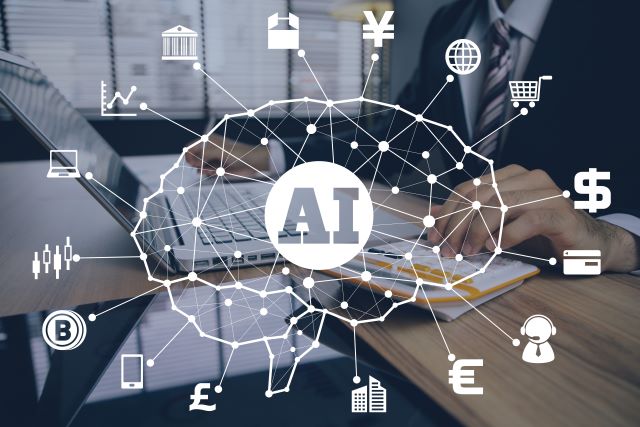
Recently, the Hispanic Association of Colleges and Universities (HACU) hosted a webinar titled “Empowering Higher Ed Leaders – Harnessing Generative AI for Institutional Innovation.” This online event was exclusively for HACU members, continuing the organization’s tradition of discussing artificial intelligence (AI) in higher education.
In partnership with Conectado, HACU had previously held a panel featuring three nationally recognized educators who explored the use of AI on college campuses.
The prior session, “AI in Higher Ed: Insights from Academic Leaders,” included a panel of educators who discussed successful AI applications, future initiatives, and how AI can deliver meaningful outcomes for students, faculty, and institutions.
They shared insights on who is testing and implementing AI on their campuses, covering both practical classroom applications and broader campus-wide strategies. This session also examined successful initiatives alongside areas that are still being developed.
In April 2025, HACU announced a partnership with Logixs, a Spanish company specializing in generative AI, to enhance education within member institutions.
A memorandum of understanding was signed by Logix’s CEO, Francisco José Moreno Balboa, and HACU President and CEO Antonio R. Flores during HACU’s Annual National Capitol Forum on April 29.
This partnership aims to facilitate collaboration on research projects related to generative AI and engage private companies in research and development initiatives focused on educational and technological innovation.
As higher education undergoes a transformation driven by AI, Dr. Emmanuel Lalande, a prominent academic leader, has shared his vision for the future of historically Black colleges and universities (HBCUs) in an op-ed for Diverse.
Recently appointed as the senior vice president of enrollment strategy and student success at Columbia College Chicago, Dr. Lalande emphasizes AI’s potential to reshape and reinforce the mission of HBCUs.
These institutions play a vital role, producing over 25% of Black graduates in science, technology, engineering, and math (STEM) fields, as well as a significant number of Black teachers and engineers.
Dr. Lalande describes how AI can enhance this legacy through tools such as predictive analytics, AI chatbots, AI tutors, and adaptive learning platforms.
Additionally, AI can optimize scheduling and resources to proactively intervene and prevent student dropouts, providing 24/7 support for complex enrollment, financial aid, and housing inquiries, and assisting students in subjects like developmental math, science, and writing.
Moreover, AI can help HBCUs streamline operations and improve course offerings. Dr. Lalande encourages these institutions to actively seek philanthropic support from organizations such as the Gates Foundation, which plans to allocate its entire $200 billion endowment by 2045.
One investment opportunity could be an AI-driven platform for personalized math instruction, aligning with the HBCU mission of “AI for Equity.”
He notes that engagement with the tech industry has evolved from token partnerships to meaningful collaborations.
Examples include partnerships with companies like OpenAI and Intel, which is committed to advancing research in AI, data science, and cybersecurity at Morgan State University, as well as support from Apple and Google for HBCU initiatives in coding, machine learning, and entrepreneurship.
However, Dr. Lalande calls on major educational technology firms—like Microsoft, Salesforce, Nvidia, Coursera, and Anthropic—to move beyond superficial partnerships.
The message for Historically Black Colleges and Universities is clear: HBCUs were founded to address unfulfilled educational needs in America.
They have historically turned exclusion into excellence and marginalization into momentum. Today, they have the opportunity to replicate that success by utilizing algorithms, neural networks, and digital dashboards.
The U.S. Army Corps of Engineers has been tasked with…
Brown and Caldwell, a leading environmental engineering and construction firm,…
Humboldt State University, one of four campuses within the California…